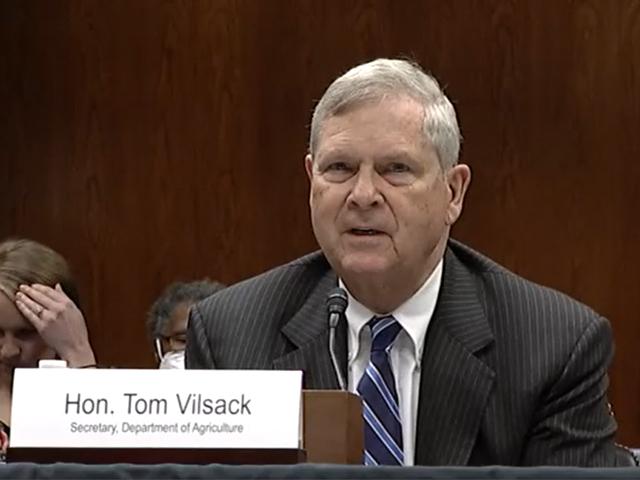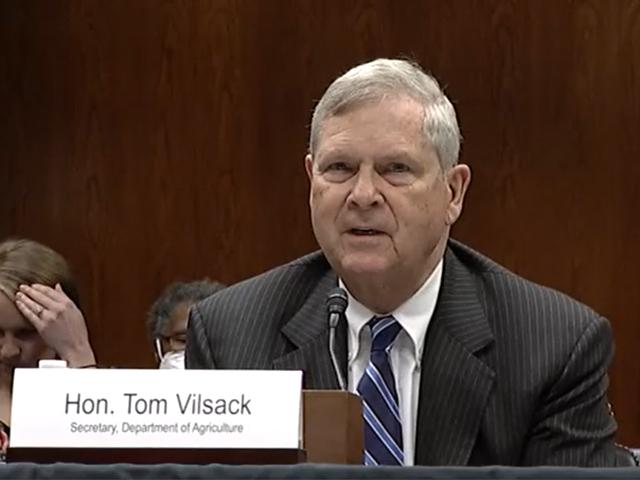Ag Policy Blog
Correcting Vilsack on Distressed Farm Families
There are 24,673 farm families delinquent on USDA loans or in deferral that began during the pandemic, though USDA's press office had to correct Agriculture Secretary Tom Vilsack's testimony Tuesday before the Senate Agriculture Appropriations Subcommittee USDA issued a news release on his opening statement to the committee.
Vilsack had initially said during the hearing that 61,670 farm families "are either delinquent in their loans to USDA, or bankrupt or are pending foreclosure."
He added, "It's important for us to put a spotlight on the challenges. Now these are people who have borrowed from USDA or who have had a guaranteed loan from USDA, which means that they haven't been able on their own to go to a commercial bank and be able to secure financing. So these are folks who need help. They need assistance."
When the secretary said that, yours truly thought the number 61,670 was high. I tweeted out his comments because I have the Agriculture secretary saying that in a U.S. Senate hearing. DTN Reporter Todd Neeley @DTNeeley also saw my tweet. He noted, "Have no way of knowing, but that number seems way too high."
And Todd was right.
I had asked USDA's press office about the specific number and how the secretary came up with it. I had suspected FSA had provided those details.
When USDA's press release came out after the hearing, detailing Vilsack's opening statement, USDA dropped the number of distressed farm families down about 60% from the secretary's original number. The press office replaced the secretary's figure with 24,673.
"There are [24,673] farm families in America today that are on the brink. [24,673] farm families that are either delinquent in their loans to USDA, are bankrupt or are pending foreclosure. This is a serious issue and I'm pretty confident that every single member of this committee probably has a number of those [24,673] farmers living in their states."
Kate Waters, a USDA press secretary, said in an email about the discrepancy, "A(n) honest mistake in his math in the minutes before the hearing. He added the totally number of guarantees borrowers to the deferral/direct numbers instead of the number of guaranteed borrowers that were distressed. He corrected himself in the gaggle immediately after."
USDA reports there are 14,044 farmers with direct Farm Service Agency loans who are "distressed," meaning delinquent on their payments. At least 10,000 farmers have taken advantage of a USDA deferral program for delinquent payments. Of farmers who receive loan guarantees through USDA for private lenders, there are 629 guaranteed loans that are distressed.
Vilsack's figures do not include any farmers who may also be financially stressed but do not have a loan or loan guarantee through FSA.
P[L1] D[0x0] M[300x250] OOP[F] ADUNIT[] T[]
Tuesday's hearing focused heavily on disaster aid, as well as funding for Ukraine. See "Senators Quiz Vilsack on Disaster Aid" https://www.dtnpf.com/…
PFAS CONTAMINATION
Maine's congressional delegation keeps pushing Vilsack to do more about "forever chemicals" per- and polyfluoroalkyl substances -- known as PFAS, PFOS or PFOA chemicals.
Sen. Susan Collins, R-Maine, complained in Tuesday's hearing that she had written Vilsack twice about USDA's role in addressing problems caused by contamination from PFAS chemicals and that he did not respond to a letter she sent in October and had responded to a second letter she and the Maine delegation sent Tuesday at 1:24 a.m.
Some Maine farmers have been told they cannot sell their milk or meat from their cattle because of contamination from PFAS.
Vilsack apologized for the tardy response and said he is making a special effort to respond to congressional inquiries.
Collins maintained that the dairy indemnity program only covers milk, but Vilsack said USDA had been providing aid based on livestock.
Vilsack said he is working with the Environmental Protection Agency to come up with a national standard for PFAS and that he would be happy to work with the Senate Agriculture Appropriations Subcommittee or any other committee to establish the level of resources needed to deal with the farmers' problems.
Vilsack noted that, while Maine has been one of the first states to deal with the issue, it is a national problem because sludge containing PFAS was spread as fertilizer all over the country.
High fertilizer prices, combined with companies offering to apply biosolids or sewage sludge on farmers' fields for free is going to magnify the potential risks of PFAS contamination.
DTN reported on PFAS contamination in Michigan, Maine and New Mexico in an article on May 6.
Chris Clayton can be reached at Chris.Clayton@dtn.com
Follow him on Twitter @ChrisClaytonDTN
(c) Copyright 2022 DTN, LLC. All rights reserved.






Comments
To comment, please Log In or Join our Community .